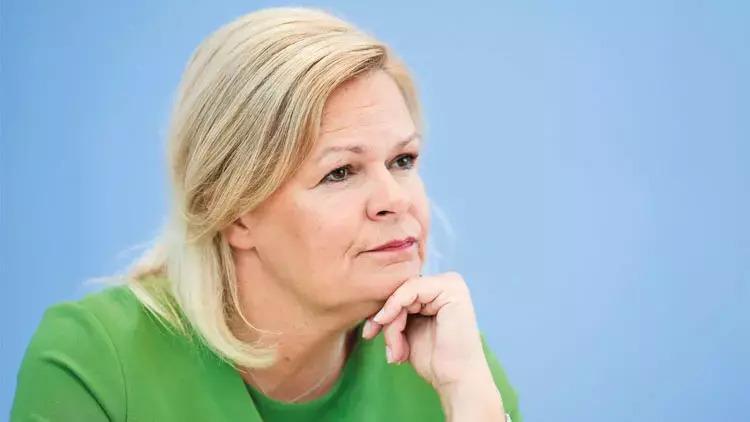
German Interior Minister Nancy Faeser has championed the new modern citizenship law, recently approved by the cabinet, heralding it as a significant step toward inclusivity in German society.
"This reform is proof that Germany is modern and diverse. People who have lived in Germany for a long time will finally become fully part of this country and have all democratic rights," Faeser stated during an interview with daily Hürriyet on Oct. 4.
The federal government's latest initiative stems from a key promise made in the coalition agreement, enabling foreign nationals residing in Germany to acquire citizenship at an accelerated rate. Most notably, the legislation introduces the concept of multiple citizenship, marking a departure from previous regulations.
Upon the implementation of dual citizenship, a demographic deeply affected will be the hundreds of thousands of people of Turkish origin residing in Germany, which houses the largest Turkish diaspora worldwide.
Faeser acknowledged the substantial contributions made by immigrants, specifically referencing the labor agreement signed between Türkiye and Germany 62 years ago. The pact facilitated the migration of around 800,000 Turks to Germany until 1973 when it was discontinued.
"We are certain that they have made a vital contribution to our country. That is why we want to make it easier for these generations to become German citizens with the reform we are planning," she said. "They worked diligently in our industries for decades, and now they can finally become Germans without unnecessary obstacles."
However, the proposed bill still faces hurdles before becoming law, requiring parliamentary approval, which is anticipated to be the subject of rigorous debates at the Bundestag in the near future.
Faeser took the opportunity to reference former Prime Minister Gerhard Schröder's efforts 24 years ago to introduce dual citizenship, an initiative that was thwarted by opposition from the CDU/CSU alliance.
"Those discussions and the CDU/CSU's attitude set us back years in the race to bring qualified personnel to the country. People will only come here if they believe that they can be a part of our country," the minister stated.
Addressing concerns about immigrants' adaptability, Faeser countered the narrative, blaming the lack of opportunities in the past. "The current government has rectified this. We significantly increased the number of language courses and integration programs," she remarked.
Meanwhile, Faeser also reaffirmed her stance on the European Union's commitment to a renewed refugee agreement with Türkiye.
Her remarks come in light of an existing deal signed between Türkiye and the EU in March 2016 in an attempt to manage the migration influx, especially after the war in Syria. Under this deal, Türkiye committed to curbing the flow of irregular migrants from its shores to the Greek islands.
"The EU is prepared to offer increased financial support for the welfare of refugees in Türkiye," Faeser stated. "We anticipate that Türkiye will continue to uphold its responsibilities in this field."